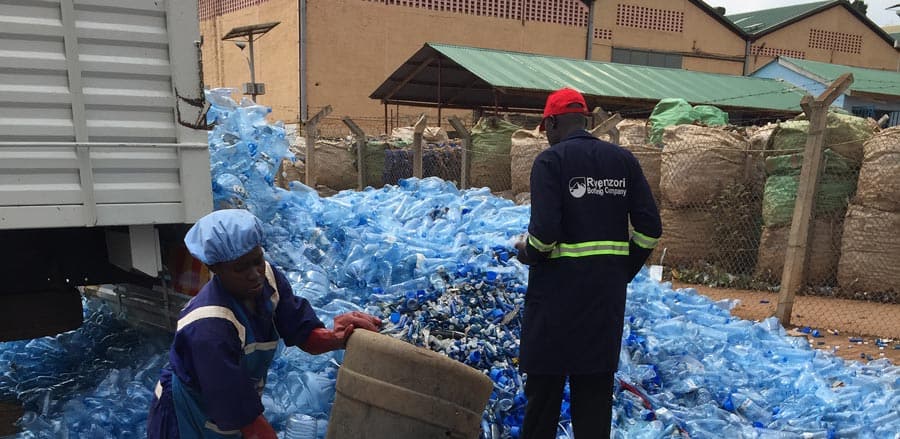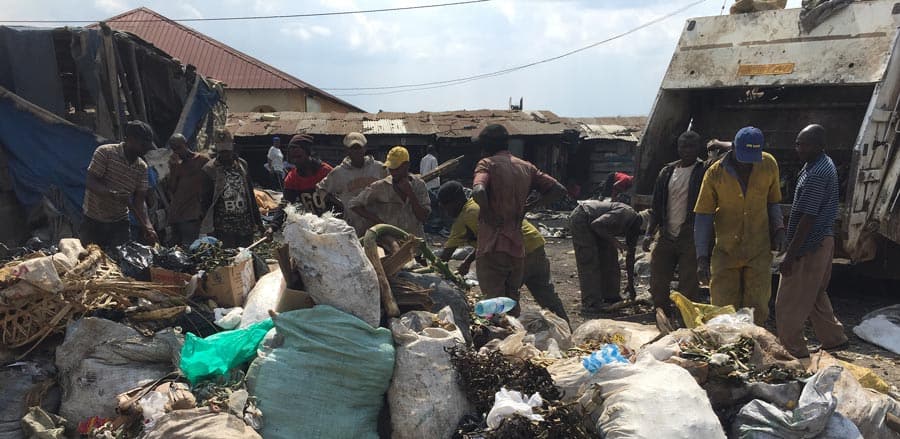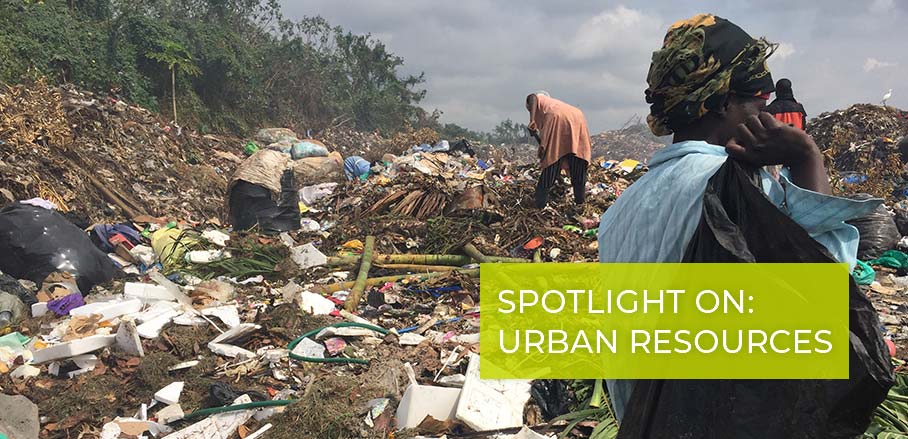Circular Economies as an Answer to the Waste Crisis: Lessons Learnt
The world’s cities have a critical role to play in supporting global sustainability efforts and tackling climate change. Effective waste management lies at the very core of these ambitions, says Donovan Storey from the Global Green Growth Institute.
Cities globally, and at all levels of development, face both a resource and waste crisis. In lower income countries alone, waste generation will more than double over the next twenty years, making effective waste management an urgent environmental and health priority for cities everywhere.
Managing waste is becoming more complex from a capacity and regulatory perspective. Waste composition continues to shift from predominantly organic towards greater volumes of non-organic and e-waste. Cities in developing countries rarely have the capacity, technology or administrative framework to deal with these non-traditional waste streams. Therefore, local strategies should consider a more holistic approach to waste management, focussing specifically on the 3Rs (reduce, reuse and recycle) and innovative and inclusive waste-to-resource approaches.
The Global Green Growth Institute (GGGI) has been working in a number of developing countries to support this transition in a holistic and inclusive manner. The vision is to shift away from landfill-oriented solutions towards circular economies while deriving revenue, as well as creating green jobs through innovative waste management practices. The following six strategies summarise the key lessons learnt towards cleaner, healthier and more sustainable urban spaces.

Recycling Station Kampala © Donovan Storey
Evaluating and Valorising Waste Value Chains
No material has the same value chain – and therefore solutions need to be tailored to the specific type of waste and its life cycle. GGGI has completed detailed value chain assessments in Uganda, which have sought to identify the distinct economies, stakeholders, infrastructure, behaviours and, of course, markets for waste materials. Key lessons have been that waste streams are unique, and are both highly localised and globalised. That is, their relationship to consumers and stakeholders can be specific, while waste generation and end-markets are more globally shaped. Understanding such dynamics is critical to the success of waste-to-resource approaches and investments.
Shifting Away from Landfill-Dependent Systems
Waste systems can no longer operate on linear-managed systems typified by ‘collect and dump’. Cities increasingly realise that deriving value from waste management is a high priority, as waste management accounts for a high proportion of budgets. Materials recovery, valorisation, or reducing the costs of collection, are all sought by municipal authorities that, more than ever, are open to circular economy solutions. Nevertheless, most authorities in developing countries have limited expertise beyond business-as-usual approaches, including experience in working with private/informal actors and investors. GGGI has been working in several secondary cities in Senegal, Rwanda, and Cambodia on helping municipalities and governments see those opportunities and shift their business models around waste management.
Supporting Local Solutions and Responsibility
There is an emerging geo-conflict and -politics of waste, hastened by China’s National Sword policy from 2018, which has had the effect of empowering other developing countries, such as Malaysia and Indonesia, to ban and return mixed ‘dumped’ waste originating from countries such as Australia and Canada. Such shifts highlight the necessity for local and more decentralised solutions in collection, storage, and processing infrastructure, thus placing greater urgency on ‘near place’ responsibility. Ultimately, it’s about reducing landfill dependence, capturing materials closest to source, and investing in the (missing) infrastructure to support that.
Therefore, national laws and regulations on recycled materials and their use must be reconsidered. Some countries have disincentives, for instance a preference to export pellets overseas, and no procurement incentives for recycled materials. Even where there is value and supply, a cookie-cutter approach won’t work, as has been observed with plastics.

Waste collection at market, Mbara © Donovan Storey
Engaging All Stakeholders in Change
A fundamental issue is the effective mapping and understanding of all stakeholders in the waste system, both formal and informal, and engaging them in an efficient and empowering manner. This relates especially to issues with household behaviour and decision-making (for example in separation of materials), the collection of materials, reliable access to materials for recycling companies, information on prices and purchasers for especially informal collectors, and an infrastructure which supports a more integrated system to achieve the 3Rs. Here GGGI has been working with government in Lao PDR and Peru on its key role to play – with respect to leading on communicating a waste management vision and investing in local/community infrastructure which supports recycling, storage and collection.
Providing a Role for the Private Sector
Many municipalities do not have much experience working with the private sector, or the capacity to do so. There are a number of localised innovations engaging the private sector, but at scale, these continue to struggle against prevailing norms and business-as-usual systems. There is also a significant evidence gap which contributes to a dysfunctional and less effective waste-to-resource transformation. GGGI has been working with several countries to help align PPP contracts with different ways of doing business, encouraging new actors, approaches and infrastructure. This includes linking waste entrepreneurs to households and business-sources of waste. In this way we can see examples of positive change, when we connect progressive policy visions at city-level with actors in the private sector who wish to engage in waste management. To a great extent it is this association that is important to demonstrate to government that new investments can immediately come from policy change.
Utilising and Encouraging Adoption and Investment in Smart Systems and Infrastructure
GGGI is increasingly engaged in partnerships around smart cities, as there are emerging approaches and technologies relevant to waste management. These span a broad range of initiatives: from low-cost options which engage households and the informal sector, such as through the use of apps and smartphones; in service delivery, collection and recycling; to the employment of smart sensors on bins or GPS systems on collection, transport and disposal infrastructure; and the development of smart ‘waste banks’. The importance of improving waste management (including collection) through the employment of technology cannot be overstated. Albeit answers may not stem from technology in isolation, technology can support smarter solutions and approaches for improved governance, communication and management systems.
- Resilient Cities are Green Cities - 2. July 2020
- Circular Economies as an Answer to the Waste Crisis: Lessons Learnt - 21. April 2020
